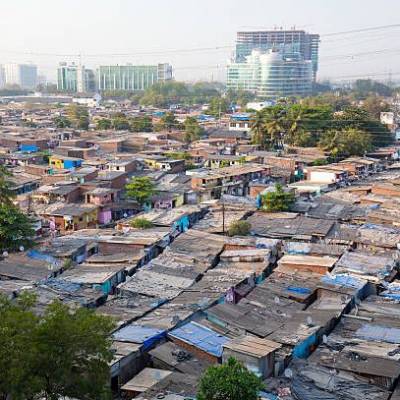- Home
- Real Estate
- A New Era

A New Era
Demonetisation, RERA, GST and the granting of infrastructure status to affordable housing have made this a game-changing year, says <span style="font-weight: bold;">SEBI JOSEPH.</span><br /> <br /> Indian real estate is all set to embark on a new phase with the advent of multiple policy reforms in the past nine to 10 months, such as demonetisation, RERA, infrastructure status to affordable housing and GST. This game-changing year can be labelled a 'new era' as these reforms are aimed at resolving major hurdles by increased transparency and raising consumer and investor confidence, which will enable sustainable growth of the sector and the overall economy. <p></p> <p> <span style="font-weight: bold;">A transformative step</span><br /> The act of demonetisation took the whole country by surprise. <br /> Even though the lack of availability of currency notes had an adverse effect on various businesses for a brief period of time, the ill-effects of demonetisation are now a thing of the past. Cities where speculative buying (or buying for investment) is high witnessed, demand is coming under pressure. <br /> The real-estate allied industries also saw a slowdown in near-term demand owing to their high dependence on real estate. <br /> However, the transformation has already started with demonetisation, which will prove to be beneficial in the long term. </p> <p> <span style="font-weight: bold;">Simply revolutionary</span><br /> The 'One Nation, One Tax' concept of GST has been introduced to simplify the taxation policies of the country and is, indeed, revolutionary. While the GST Bill will successfully curb the cascading effects of taxation in other sectors, the 12 per cent GST rate in the real-estate sector is only a fraction of its tax burden. Stamp duty would also be levied on all immovable property, which would vary from 5-8 per cent of the value of the property. It is difficult to ascertain the exact benefits as of now, as it will take one to two quarters for businesses to get streamlined. </p> <p> <span style="font-weight: bold;">Towards transparency</span><br /> RERA has been introduced to regulate the sector by bringing transparency to increase consumer and investor confidence. The Act is urging developers to streamline their entire business. It is also regulating the industry in the way it sells its projects as well as the requirement for registering properties. In short, it seeks to bring in clarity and fair practices that will protect the interest of buyers. This will mean a more accountable and transparent environment that will boost the relationship between a buyer and a developer, and drive the future growth of the industry harder while paving the way for FDI. </p> <p>The elevator and escalator industry is, of course, closely related to the real-estate industry. </p> <p>Third-party analysts forecast that the construction industry is expected to grow by 6-7 per cent, in line with the GDP. While we expect that the real-estate industry may face higher vacancy levels, we expect for it to ease up in the near future. </p> <p> Housing for all Another landmark declaration has been the lending of infrastructure status to affordable housing. This will ensure developers easier access to institutional credit and reduce cost of borrowing for affordable projects, thus providing developers a boost to undertake these projects. Indeed, the affordable housing segment is expected to be a significant contributor to the real-estate sector in the near future. </p> <p>In addition, with the relaxation in FDI policy in the service and retail market, the entry of international players in the retail sector will result in an increase in construction projects in this sector, which would lead to an increase in demand for escalators in the country. </p> <p>All considered, the government's intention and aim to restructure the economy and regulate the real-estate sector with reforms such as demonetisation and RERA have positive long-term implications and will benefit the entire ecosystem. While there are teething problems for the industry, similar to what happens when any new reform comes into existence, we continue to remain positive.</p> <p> <span style="font-weight: bold;">About the author: <br /> Sebi Joseph, President, Otis India,</span> is responsible for the overall leadership and strategy for Otis India, Sri Lanka, Bangladesh and Nepal. Prior to this, since March 2012, he served as the Managing Director of Otis India.</p>
























